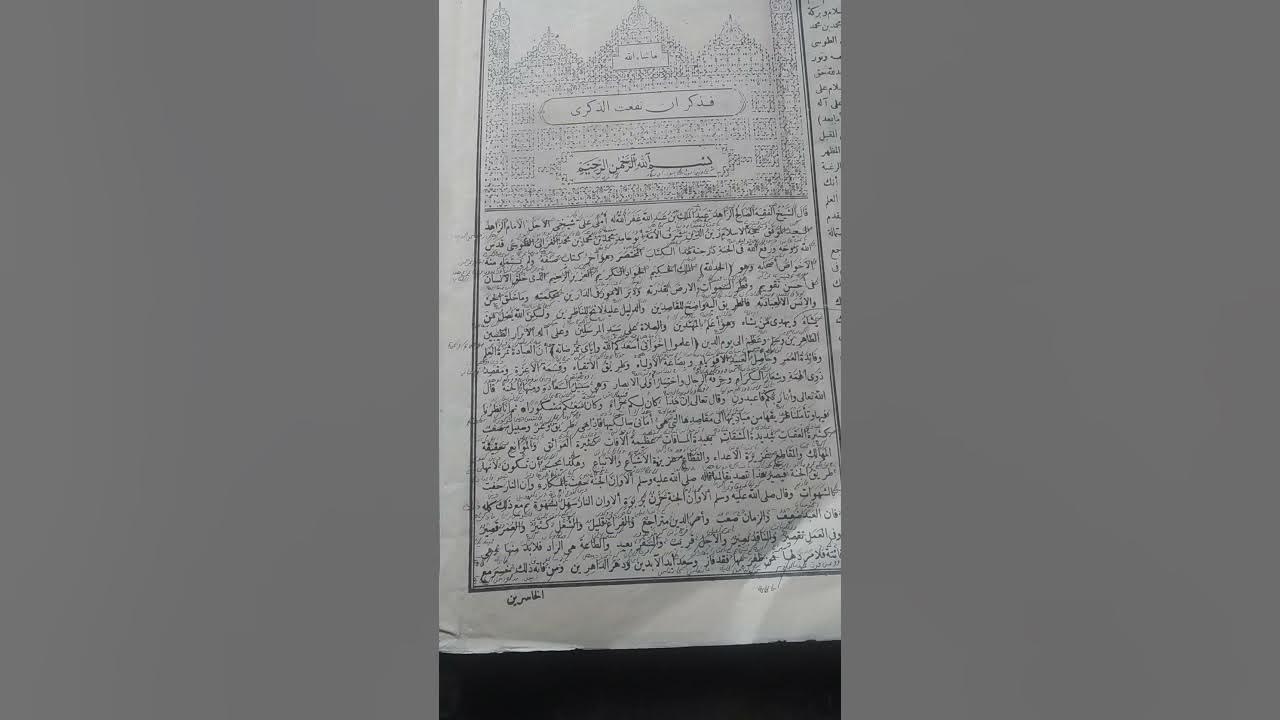Menata Hati | Hikmah ke 1 | Mutiara Hikmah Buya Yahya
Summary
TLDRThis video transcript offers insightful guidance on self-reflection and personal growth, based on the teachings of Imam Ghazali. It highlights the importance of acknowledging one’s shortcomings and avoiding the temptation to belittle others. The speaker emphasizes how understanding and correcting one’s flaws can foster humility and compassion. It also touches on the value of seeking feedback from loved ones and even enemies, using criticism as an opportunity for self-improvement. Ultimately, the message encourages viewers to focus on self-awareness, self-correction, and spiritual growth while fostering a sense of empathy for others.
Takeaways
- 😀 Recognize your own shortcomings and avoid judging others, as the mistakes others make can happen to you as well.
- 😀 Always reflect on your actions daily to identify areas for self-correction and improvement.
- 😀 Don't let your strengths lead to arrogance or the belittling of others.
- 😀 Seek forgiveness from Allah for your shortcomings and constantly work on bettering yourself.
- 😀 If someone criticizes you, view it as an opportunity for self-improvement rather than responding with anger or frustration.
- 😀 Make self-correction a habit and involve trusted friends or family to help you stay accountable for your actions.
- 😀 When others make mistakes, avoid mocking or belittling them, and instead, pray for their improvement and forgiveness.
- 😀 Understand that everyone has strengths and weaknesses, and avoid comparing yourself to others in a negative way.
- 😀 Practicing humility and respecting others' privacy is essential to personal growth and community harmony.
- 😀 Always seek to cover the faults of others, and ask Allah to help you focus on your own flaws rather than exposing others' mistakes.
Q & A
What is the main message of the transcript?
-The main message emphasizes self-correction, the importance of humility, and the need to recognize one's own shortcomings. It also stresses the significance of not belittling others and seeking Allah's forgiveness for our mistakes.
How does Imam Ghazali suggest we recognize our own shortcomings?
-Imam Ghazali suggests that we reflect on our actions from morning to evening and continuously assess our behavior to identify any mistakes. Self-correction involves being honest with oneself and recognizing where improvement is needed.
Why is it important not to belittle others' mistakes?
-It is important not to belittle others because their mistakes could happen to us as well. Recognizing this helps cultivate empathy and prevents arrogance. The transcript stresses the need to pray for others' forgiveness rather than mocking or judging them.
What role do friends and family play in helping us recognize our faults?
-Friends and family can assist in identifying our shortcomings. Imam Ghazali advises having an agreement with loved ones to remind us of our mistakes when necessary, encouraging an open and supportive environment for self-improvement.
How should we react to criticism from others, even from enemies?
-When criticized, especially by enemies, one should listen carefully. Enemies might point out our flaws, and we should use this as an opportunity to improve rather than become defensive or angry.
What does the transcript suggest about the nature of human imperfection?
-The transcript acknowledges that all humans are imperfect and capable of making mistakes. It highlights that acknowledging our imperfections, seeking forgiveness, and striving for self-correction is essential for personal growth and avoiding arrogance.
Why should we focus on our own flaws rather than others' shortcomings?
-Focusing on our own flaws allows us to improve ourselves without the negative tendency to judge others. The script encourages us to leave others' faults to Allah and work on refining our own character.
How does the transcript address the concept of arrogance?
-The transcript addresses arrogance by emphasizing the danger of being blind to our own faults while easily seeing others' flaws. It advises humility and the practice of self-correction to combat this arrogance.
What is the role of prayer in addressing mistakes according to the transcript?
-Prayer plays a central role in seeking forgiveness for our own shortcomings and asking Allah to help us become better people. The transcript suggests praying for the forgiveness of others, especially when they make mistakes.
What does the transcript say about the relationship between self-reflection and improvement?
-The transcript suggests that continuous self-reflection is key to improvement. By regularly examining our actions, we can correct our mistakes, grow spiritually, and avoid falling into the trap of arrogance or neglecting our own flaws.
Outlines

This section is available to paid users only. Please upgrade to access this part.
Upgrade NowMindmap

This section is available to paid users only. Please upgrade to access this part.
Upgrade NowKeywords

This section is available to paid users only. Please upgrade to access this part.
Upgrade NowHighlights

This section is available to paid users only. Please upgrade to access this part.
Upgrade NowTranscripts

This section is available to paid users only. Please upgrade to access this part.
Upgrade NowBrowse More Related Video

TAFSIR SULUK LINGLUNG SUNAN KALIJAGA, BAGIAN:2 Macam-Macam Nafsu

nembel minhajul Abidin 1. Mugi Istiqomah

GUS BAHA - SATU SUJUD LEBIH PENTING DARI DUNIA DAN SEISINYA

[LIVE] Kajian Subuh: Do'a Khusus Mendapat Ampunan Allah di Bulan Ramadhan - Ustadz Adi Hidayat

EPS 72 "Implementasi Fiqh Sufistik"

Psikologi Puasa : Mengenal Diri dan Mengembangkan Kesadaran I Kultum Ramadhan 1446 H SMPIT MS
5.0 / 5 (0 votes)